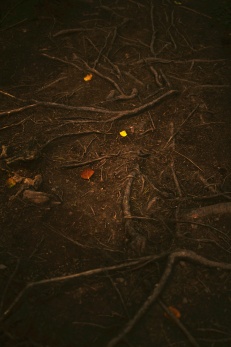 In a previous post, I proposed meditation as a living practice, one that may be embodied in every interaction we undertake with the world. Finding beauty, connection, and stillness in the busyness that can often feel inseparable from our existence. Meditative moments are essential in stepping back and assessing, with clarity, the stories we have written for ourselves. Such stories can consist of anything from five-year plans to grocery lists and, once written, have the potential to dictate our lives.
In a previous post, I proposed meditation as a living practice, one that may be embodied in every interaction we undertake with the world. Finding beauty, connection, and stillness in the busyness that can often feel inseparable from our existence. Meditative moments are essential in stepping back and assessing, with clarity, the stories we have written for ourselves. Such stories can consist of anything from five-year plans to grocery lists and, once written, have the potential to dictate our lives.
For instance, let’s say I decide to become a “vegetarian.” Like others on this path, I have personal reasons for making this decision. I have written the story of my vegetarian identity, which I can use to explain my dietary preference to others. However, it is when I lose the true essence of my intention that I allow this vegetarian script to run on autopilot: I might think, speak, and eat in ways no longer because I consciously choose to, but because I have let them become prerecorded. I use the example of dietary choice, in particular, because of a comment a friend once made about his own food identity: “I don’t drink or eat meat. It might change, but that’s where I’m thriving right now. I’m not straight-edge or a vegetarian – I’m just a human being.”
Living consciously requires the realization that identity is a fluid concept. When we make space to reflect on the larger picture of our lives, we recognize that our potential is much greater than the boxes we fit ourselves in. The Sanskrit term for these identity-boxes, or beliefs, is Samskara (sahn-skarr-uh). Samskaras are scars of past actions, built upon one another to form beliefs we hold about ourselves, the world, and the relationship between the two. Like a child who burns herself on a hot stove learns never to touch one again, we continually develop habitual ways of thinking that become reinforced over time. Yet, these habits of mind are often untrue, from an objective sense: they only become and remain true because we unconsciously find ways to prove them as such.
Shakespeare writes in Hamlet, “nothing is really good or bad in itself—it’s all what a person thinks about it.” And indeed, nothing about who you are is permanent; rather, it’s when we awaken to the incredible notion that we have the power to create who and what we want to be, each moment, that we recognize our potential as limitless.
So many of the spiritual texts I have studied address the attainment of “freedom.” To me, becoming aware of, then transcending our beliefs – is this freedom. When we intimately know the intentions behind our actions, we then have the power to choose what to believe about ourselves and the world around us. It’s not a question of right or wrong, but a lifelong practice of cultivating deep self-knowledge.
Pico Iyer, in this brilliant TED Talk, says that “often it’s exactly the people who have most enabled us to get anywhere who are intent on going nowhere.” I agree, wholeheartedly. When we can sit in the stillness, when we challenge ourselves to break down all the stories and limitations we create for ourselves – these are the moments when the borders between our actions and intentions vanish, and we embody our purest, truest selves.
5 thoughts on “Samskara: Unearthing the Scars that Limit Us”